It's difficult to believe that When Harry Met Sally, Rob Reiner's near-flawless "lovers from friends" romantic comedy turns thirty this year. Despite the appearance of Jazzercise, shoulder pads, and a Rolodex, the film retains a timeless quality that allows it to feel as fresh and as it did in 1989. It's often touted as a high point of the 80s and 90s rom-com era, complete with charming lead and supporting performances, a brilliant Nora Ephron-penned screenplay, and a picturesque New York City. It's a film I always stop and watch if I come across it on television and a film to which I return at least once a year.
When Harry Met Sally is often dismissed as Annie Hall-lite, and it does feature a nebbish, neurotic, male lead and a love of New York City, while also shaving off Hall 's sharper edges.
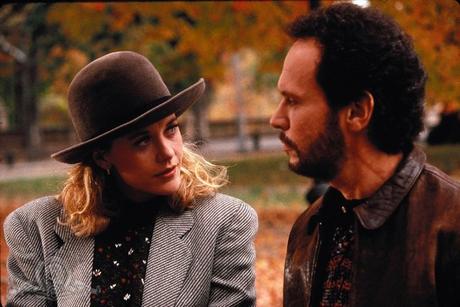
When Harry Met Sally feels warm and comforting, while Annie Hall (a film I love) feels more cynical and steeped in melancholy. However, using one to dismiss the other feels unfair. Sure, there are parallels between the two, but to act as though the latter is just cribbing a style and removing anything that made the former distinctive overlooks everything WHMS does so well.
Loosely inspired by the friendship between Ephron and the recently divorced Reiner, what distinguishes When Harry Met Sally from other well-regarded rom-coms of the era is the way it examines the passage of time. Harry (Billy Crystal) and Sally (Meg Ryan) first meet in 1977, immediately inspiring mutual dislike. They meet again five years later, continue to frustrate and annoy each other, then reunite five years later. They become friends, sleep together, then lose touch with each other, then admit they're in love with one another, something everyone but they have always know. It's a film about watching characters grow and evolve, while still maintaining an essence of who they are when we first encounter them. They become better versions of themselves, not totally different versions of themselves.
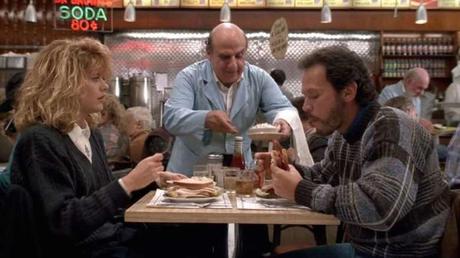
The "enemies until they're aren't" plot is hardly innovative, but the film takes its time to play the plot out, spanning more than a decade as compared to the traditional weeks or months time frame that other films might utilize. That means the inevitable ending in which Harry and Sally finally realize they're right for each other feels more natural and believable than it otherwise would, because of the years we've spent watching them grow and their friendship develop. Sprinkling other couples recounting the ways in which they drifted together and the time it took to do so add to the film's feeling that relationships take time to develop. It's a film as much about love as a concept as it is about Harry and Sally actually becoming a couple.
Ephron's screenplay, coupled with Reiner's charmingly low-key direction and willingness to just let scenes play out, ensure Harry and Sally are more complicated and nuanced than one might expect. The film has a "hang-out" vibe, emphasizing comedy through conversation and dialogue over the situational.
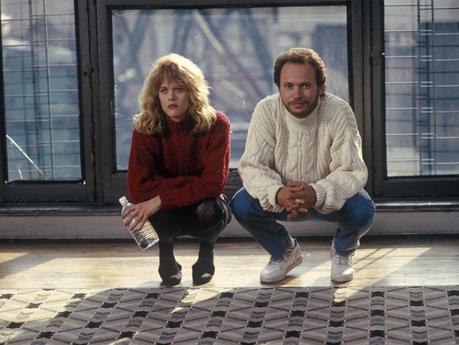
Whether it's Harry and Sally debating Casablanca 's ending, lamenting their grim dating prospects, or Sally's tendency to specify her food orders to an absurd degree, character quirks reveal themselves through dialogue. The film peels away characters' layers through various dialogue exchanges.
Ephron would go on to work with Ryan again in romantic comedy classics Sleepless in Seattle and You've Got Mail. Both are charming in their own rights, but they lack the groundedness and character development of When Harry Met Sally. Meanwhile, Reiner, in the midst of one of the strongest string of directorial efforts imaginable ( This is Spinal Tap, The Sure Thing, Stand by Me, and The Princess Bride precede When Harry Met Sally) is in top form here. He'd follow it with Misery and A Few Good Men before North practically derailed his career. He did capture some of his former glory with the charming political- rom-com hybrid, The American President, but he still hasn't recaptured the high points of his 80s heyday.
Since the two of them were friends, When Harry Met Sally feels like a perfect blending of everything that Reiner and Ephron did best: his wry, cynical humor and neuroses and her inherent warmth and ability to reveal individuals' nuances.
None of this would work if the film's performances weren't up to the material, but both Ryan and Crystal, not to mention Carrie Fisher and Bruno Kirby as side characters that develop a romance of their own, illuminate the film's crackling dialogue, rather than hinder it.
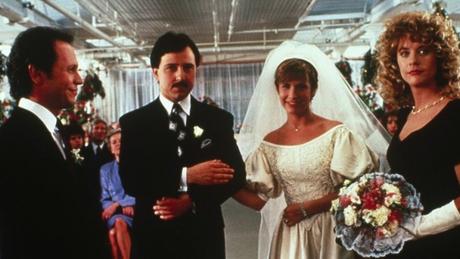
Sally was Ryan's breakout role, catapulting her into rom-com stardom, and her performance remains delightful thirty years removed. Sally's neuroses and quirks could feel grating in less capable hands, but Ryan makes Sally feel so endearingly warm and sympathetic. She's not a collection of quirks, but instead a spunky, fully fleshed-out individual. Harry also functions as a character who could feel completely insufferable, and it's nice to have Sally call him out on behavior towards women that feels more problematic than it once did, but Crystal couples Harry's simmering anger and wounded ego with a naturalistic charm and underlying amiability. He's the more endearing, charismatic, Everyman version of the Woody Allen archetype, appealing full of self-deprecation rather than exhaustingly neurotic. They both have an effortless, lovely chemistry, and they're so adorably likable together that watching them interact and bond is just as enjoyable for the viewer as it is for Harry and Sally.
The film's central thesis, whether or not men and women can be friends without sex getting in the way, feels a bit quaint now, and it might be slightly distressing that the film seems to answer that query with a resounding "absolutely not." Yet, coupling Harry and Sally feels too natural and logical to ignore due to the way they use each other's friendship. The film climaxes not with sex, which temporarily derails their friendship, but with an emotional declaration that illustrates how much they've grown as individuals and as a potential couple.
Both of them enter their friendship feeling romantically wounded, with Harry recently divorced and Sally just out of a long-term relationship, and they use their friendship as a substitute for relationships they're not emotionally ready to attempt, a pleasant, less fraught alternative to being alone. It almost becomes a barrier to their emotional growth. It's what makes the ending so satisfying, not that they're simply getting together, but they've emotionally opened themselves up enough to recognize how perfect they are for one another.
The underlying emotional core gives Crystal's grand, romantic declaration an extra loveliness, as he's pointing out that he's not telling her he loves her because he can't be alone, but because he doesn't want to live without her.
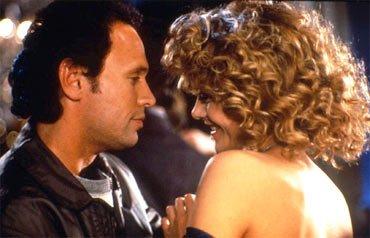
As he says, "When you realize you want to spend the rest of your life with somebody, you want the rest of your life to start as soon as possible." As iconic as the, "I'll have what she's having" moment is (and it is. It's just as hilarious as it always has been), it's this moment that always resonates with me. Climactic romantic proclamations are familiar to the point of annoyance now, but When Harry Met Sally 's remains one of the best, as it's the moment to which the film has been building: the moment Harry and Sally realize they're more to each other than just a relationship safety net. They're individuals that enhance and bring out the best in one another.
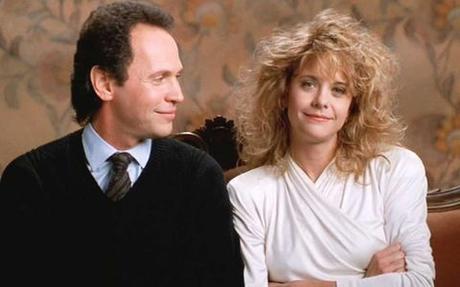
Thirty years removed, When Harry Met Sally 's charming, character-driven, "let's all hang out and talk" vibe feels like a lightning-in-a-bottle moment romantic comedies have been both using for inspiration and trying to recapture ever since. It's a perfect melding of actors, director, and screenwriter to create a film that continues to resonate and find new fans. As a result, its anniversary is worthy of celebration.
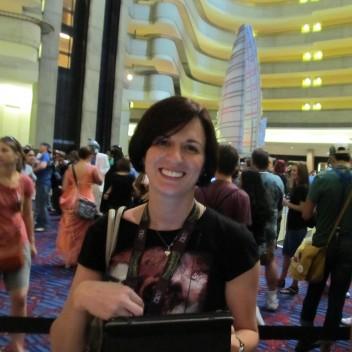
Oh you know, I'm just your typical wallflower, high school theatre nerd who minored in film studies, attained her M.A. in English Literature,works as a substitute teacher, and decided to go to nursing school, but really wants to be a writer who blogs about pop culture, and then have people who. . .wait for it. . .actually read/ look forward to what she writes. In my spare time (when it's there), I watch one of my many blu-rays or DVDs (about 800 now), reading my kindle (one of the greatest inventions ever), playing my ipod (another one of the greatest inventions ever), obsess over b=Broadway musicals and horror films, and play my guitar (badly). In other words, I have no life that doesn't revolve aroung pop culture or school. Sigh. View all posts by Julianne Ramsey

